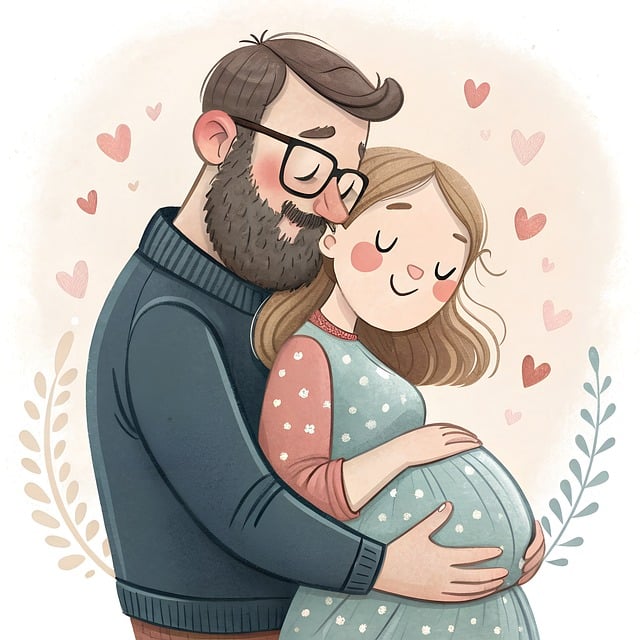After five years of navigating the ups and downs of IVF, Alex and Mia from Malvern welcomed their little one, Oliver. They are incredibly grateful to TFP Oxford Fertility for their expertise, attentiveness to their questions, and for genuinely checking in on their well-being throughout the journey. When they shared their IVF news on social media, they were taken aback by the number of people who reached out, expressing appreciation for their openness and sharing their own fertility struggles.
Beginning Their Journey
Alex and Mia have known each other since their mid-twenties and tied the knot at 35. Aware of their ages and having friends who faced challenges conceiving, they began trying for a child right away. After a year of trying, they consulted their GP. However, with tests showing no issues, they were advised to wait another six months before seeking further help.
Seeking Help
As Mia approached 37, they were referred to a local fertility specialist who conducted additional tests. Again, everything appeared normal, but because of the time they had spent trying, they were referred to an NHS hospital in Birmingham for IVF. Their first IVF attempt seemed promising: Mia produced plenty of eggs, and Alex’s sample was good, yet shockingly, none of the eggs fertilized. Both were heartbroken, and to add to their worries, the NHS coverage for IVF had just been cut from two cycles to one, meaning they would have to self-fund their next attempt.
Second Attempt and Challenges
Despite their disappointment, they chose to return to the same hospital for the second round but later wished they hadn’t. The process was similar, with the addition of ICSI (intracytoplasmic sperm injection) where a sperm is injected directly into the egg. While Mia produced numerous eggs again, only three fertilized, and development stalled by day three. The embryos were transferred, but unfortunately, it didn’t take.
During this cycle, the consultant suggested that Mia might have endometriosis, which could explain her chronic pain. She was referred for surgery, but the waiting period was lengthy, and they decided the potential benefits didn’t outweigh continuing with IVF. They began researching clinics and ultimately chose to transfer to Oxford Fertility after hearing positive feedback from a friend undergoing treatment there. The consultant who had assessed Mia’s endometriosis also worked at the Oxford clinic.
A Game-Changing Decision
The decision to switch proved to be a game-changer. The facility was specifically dedicated to fertility, offering a calmer and more supportive environment. Rather than feeling rushed, Mia received focused attention from the staff during procedures. Again, she responded well to the stimulation drugs, but despite several eggs fertilizing, they didn’t reach day five, the clinic’s threshold for embryo transfer.
Understanding they needed a new strategy, their consultant suggested a combination of stimulating drugs, which turned out to be the breakthrough they needed. This time, the egg quality improved significantly, resulting in more fertilized eggs. Two embryos successfully reached day five and were ready for transfer, while one was frozen. However, the transfer didn’t result in a pregnancy.
Final Attempt and Joyful News
Frustration set in as there seemed to be no clear reason for their struggles. Alex even participated in trials to aid the clinic’s research, but nothing conclusive was found. With one frozen embryo left, they decided to give it one last shot. Mia felt more prepared this time, having recovered from the previous treatments, and to their joy, they finally received a positive result.
Even with the excitement, they were on edge; Mia experienced bleeding for three weeks after the positive test and had to wait for their six-week scan to confirm everything was alright. Thankfully, it turned out to be unrelated to her pregnancy. The consultant was supportive and arranged for them to transition to NHS care for additional monitoring. Shortly after, at 31 weeks, Mia’s waters broke unexpectedly during the COVID-19 lockdown, leading to a frantic rush to the hospital.
Bringing Oliver into the World
For Alex, the experience was especially challenging as he had to wait in the car park due to social distancing protocols, longing to be by Mia’s side. Eventually, doctors decided on a C-section, and Alex was able to join Mia in the operating room as their son Oliver was safely delivered, weighing 3lbs 15oz. He was cared for in the Neonatal Unit, where both parents could visit but not at the same time, resulting in a unique routine of taking turns.
After three weeks, Oliver was transferred to a transitional care ward with Mia, where he began learning to breastfeed. Again, Alex had to wait outside, eagerly anticipating the moment he could reunite with both of them. The journey to parenthood was undeniably tough, filled with emotional ups and downs. However, they found solace in sharing their experiences with each other and friends. Now, Oliver brings them immense joy with his charming personality and adorable chubby cheeks. Even the nurses in the Neonatal Unit remarked on how he made them feel broody!
Gratitude and Reflection
Alex and Mia are incredibly thankful to TFP Oxford Fertility for their care, expertise, and the supportive environment, which made a significant difference in their journey. They especially appreciated how staff checked in on their emotional well-being during consultations, showing they truly cared.
If you’re interested in learning more about preparing for your fertility journey, check out this blog post. Additionally, for anyone considering home insemination, resources like this one can provide valuable insights. And for an excellent overview of artificial insemination, Wikipedia is a great reference.
Conclusion
In summary, Alex and Mia’s journey through infertility was marked by heartache and resilience, ultimately leading to the joy of welcoming their son, Oliver. Their experience underscores the importance of seeking support and finding the right medical care during such a challenging time.

